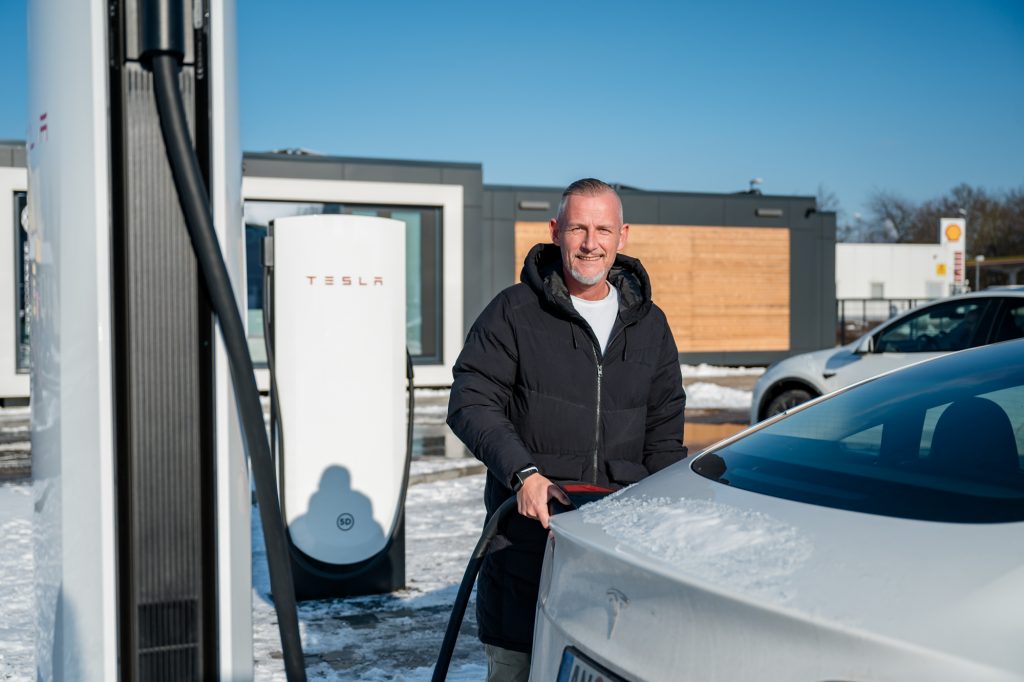Almost everyone probably knows how much a litre of petrol costs on average. But not everyone knows how much a kilowatt hour of electricity for an electric car costs. This is because it is not displayed on a large billboard like at a conventional petrol station. This is why the comparison between e-cars and combustion engines is surprising for many people: according to the comparison portal “Check24” from June 2023, filling up with electricity is still cheaper than petrol despite the rise in electricity prices.
Check24’s calculations were based on a sample household with an average mileage of 11,085 kilometres per year and an average price per kilowatt hour of 38.3 cents. An average of 21.4 kWh per 100 kilometres was assumed for consumption, based on a recent ADAC study.

How much a kilowatt hour costs at home depends primarily on your own electricity tariff. The sample household from the comparison comes to 8.19 euros per 100 kilometres with the average values mentioned. In contrast, the cost of a petrol car for the same distance is 14.48 euros.
However, the assumed average price of 38.3 cents per kilowatt hour is significantly lower than what consumers have to pay at public charging points. The figure here is around 64 cents. But even at this price, an electric car is still cheaper than a combustion engine: for 100 kilometres, you pay 13.67 euros when charging exclusively at public charging points.
This means you can save a lot if you can charge your car mainly at home or at work. The price at home can also be reduced by having your own PV system.
The various operators of fast-charging stations on motorways, such as Tesla or Ionity, offer various subscription models to reduce the price per kilowatt hour. For a monthly basic fee of around 12 – 13 euros, you benefit from a more favourable price. This model is particularly suitable for consumers who frequently drive long distances.
Tesla’s Superchargers have another special feature with regard to the price: it depends on the location and time of day. At busy times, you pay around 4 – 5 cents more.
Charging at home is very simple if the wallbox has been installed correctly: Plug it into the charging socket and you’re done.
It’s not quite as simple at public charging stations. To start the charging process, you either need a charging card from the respective operator or an app that contains the desired charging station. After plugging in the cable, the charging point can then be selected and activated via the app. Once the charging process is complete, you will be charged automatically using the stored payment method.
The charging point can also be activated by presenting the charging card. By law, since summer 2023, every newly installed charging point in Germany must have a direct payment option so that payment can be made by cash, debit or credit card or by app.
Charging an electric car is not only cheaper than refuelling a car with a combustion engine, it is also not really any more complicated. Once you have carried out this process yourself, it is no longer a challenge. And the big advantage: with your own wallbox, you no longer have to make the annoying trip to the petrol station and you start every morning with a fully charged car.
Time spent charging on long journeys can also be turned into an experience: in the charging lounges at bk World, time flies by thanks to coffee, snacks, modern sanitary facilities and free video games!